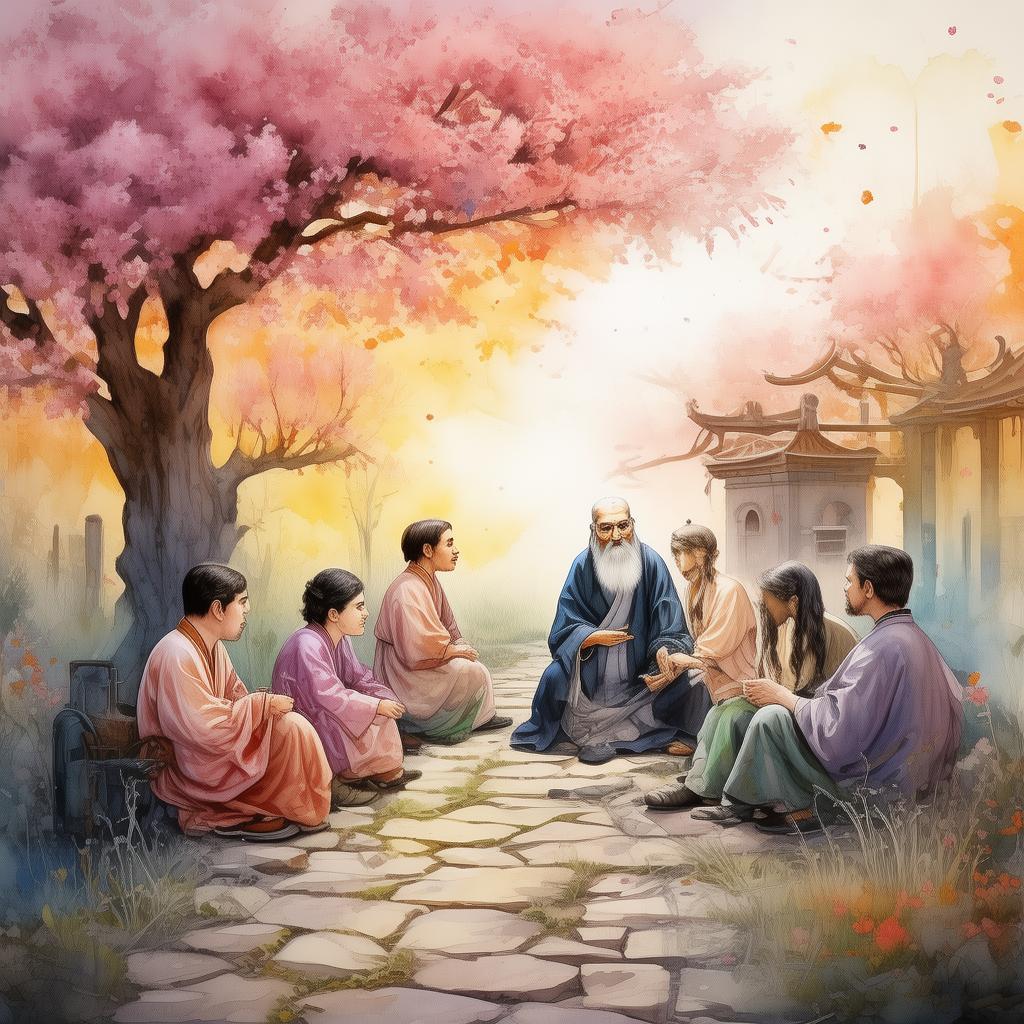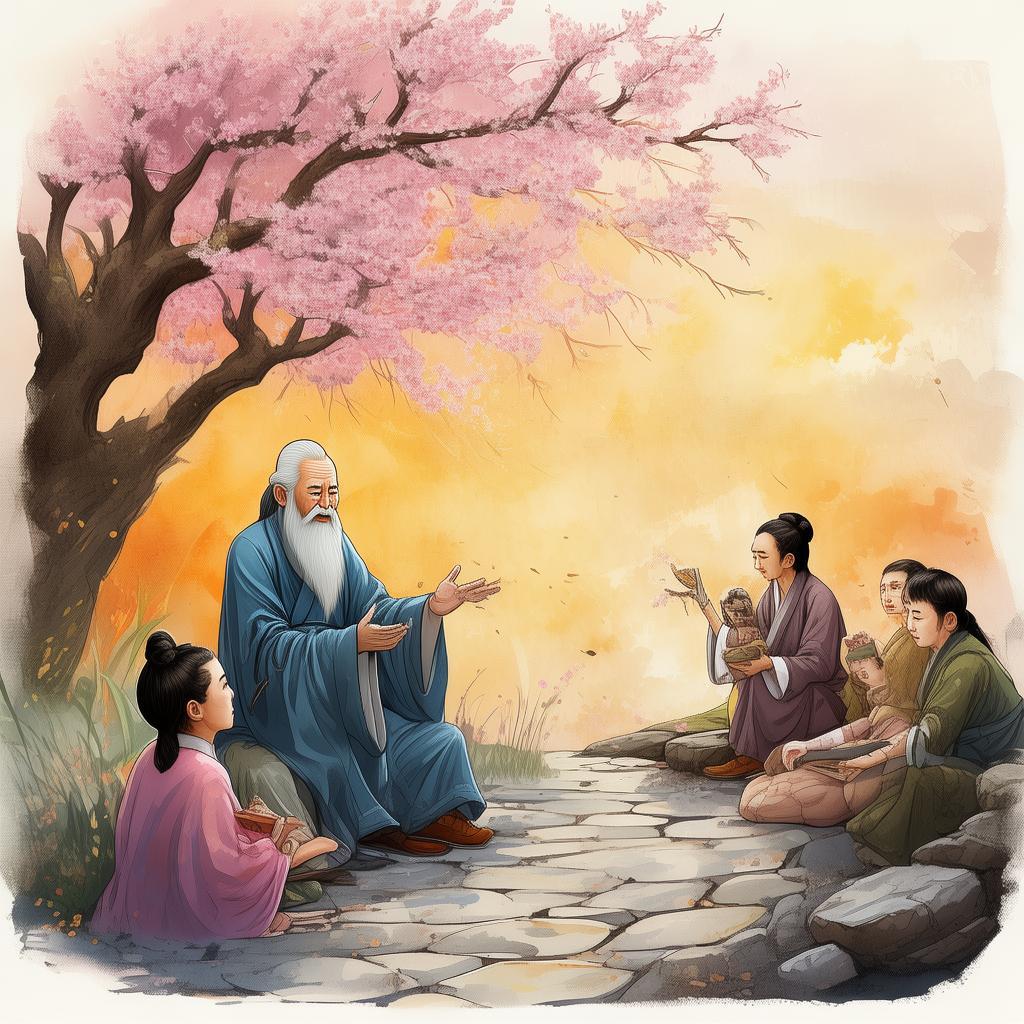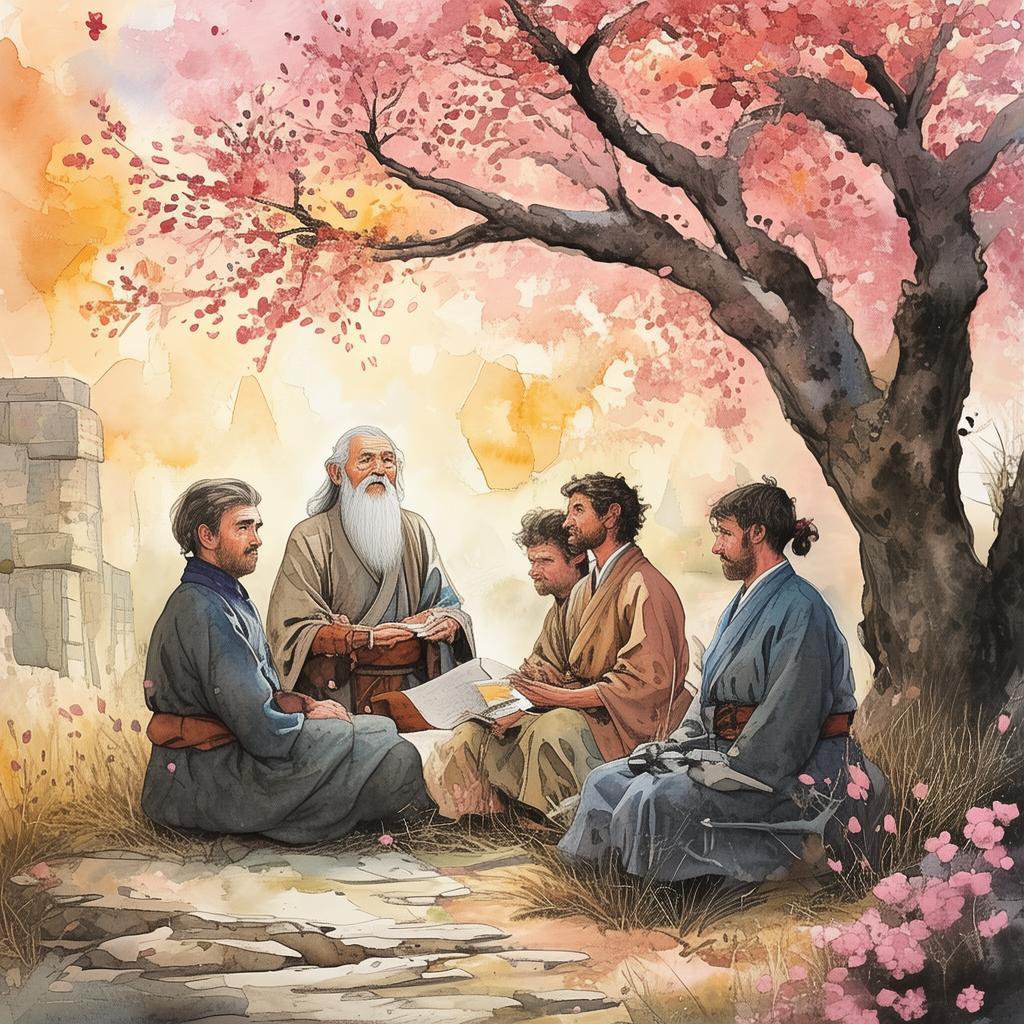The Labyrinthine Legacy: The Quest for the Family's Ancient Keys
In the heart of an ancient, overgrown garden, nestled between the gnarled branches of an ancient willow tree, there lay a weathered, leather-bound book. The book was titled "The Labyrinthine Lore: The Ancient Keys to a Family's Past," and it was the last piece of a puzzle that had been scattered across the generations of the Liu family.
Liu Mei, a young historian with a penchant for uncovering the forgotten tales of the past, had stumbled upon this book in her great-aunt's attic. The book was filled with cryptic symbols, ancient languages, and maps of labyrinthine mazes. Each page seemed to whisper of a family legacy steeped in mystery and danger.
Mei had always been fascinated by her family's history, but until now, she had never known the extent of the secrets it held. The book spoke of ancient keys, each one inscribed with a symbol that could unlock a different chamber of the labyrinth, each chamber holding a piece of her family's past.
The first key was a silver amulet, intricately carved with a dragon's head and a symbol that looked like a keyhole. Mei's great-aunt had told her stories of a family ancestor who had once been a great explorer, but Mei had never known the full story. She decided to start her quest by finding the first key.
Mei's journey began in the bustling streets of Beijing, where she visited the local museum to learn more about her ancestor. There, she discovered that her ancestor, Liang Chun, had been a renowned explorer who had vanished without a trace after his last expedition.
The second key was a golden locket, adorned with a phoenix and a symbol resembling a lock. Mei's search led her to the mountains of Sichuan, where she learned that Liang Chun had once sought the mythical phoenix feather, said to grant its bearer the ability to see through any illusion.
The third key was a jade pendant, carved with a symbol that looked like a river and a symbol resembling a bridge. Mei's research took her to the banks of the Yangtze River, where she discovered that Liang Chun had built a bridge across the river, a bridge that was said to connect the mortal world to the realm of the gods.
Each key was a clue, a piece of the puzzle that would eventually lead Mei to the labyrinth. Along the way, she encountered riddles, traps, and even enemies who sought the keys for their own gain. Mei had to rely on her wits, courage, and the ancient lore she had uncovered to overcome the challenges.
As Mei stood before the entrance of the labyrinth, she felt a chill run down her spine. The labyrinth was said to be a reflection of the soul, and Mei knew that to find the final key, she would have to confront her deepest fears and secrets.
Inside the labyrinth, Mei faced her ancestors, each one challenging her with their own trials. She learned that her ancestor Liang Chun had been a seeker of knowledge, a man driven by curiosity and the desire to understand the world around him.

The final chamber of the labyrinth held the fourth and final key, a key that was said to unlock the greatest secret of all. Mei discovered that the labyrinth was not just a physical place, but a metaphor for the human mind, and the keys were symbols of self-discovery.
The final key was a simple, unadorned ring, its surface smooth and unremarkable. Mei realized that the true secret was not in the keys, but in the journey itself. It was the quest for understanding, the courage to face one's fears, and the wisdom to embrace one's past that would unlock the true power of the labyrinthine lore.
With the final key in hand, Mei returned to the present, her heart filled with newfound wisdom. She realized that the legacy of her ancestors was not just a story, but a lesson. The Labyrinthine Lore had shown her that the true key to understanding one's family's past was the journey of self-discovery.
Mei's quest had not only uncovered the secrets of her family's past but also revealed the secrets within herself. She had faced her fears, embraced her heritage, and found the strength to carry on the legacy of her ancestors.
As Mei closed the book and placed it back in her great-aunt's attic, she knew that the journey was far from over. The labyrinthine lore would continue to guide her, and she would carry the wisdom of her ancestors with her into the future.
✨ Original Statement ✨
All articles published on this website (including but not limited to text, images, videos, and other content) are original or authorized for reposting and are protected by relevant laws. Without the explicit written permission of this website, no individual or organization may copy, modify, repost, or use the content for commercial purposes.
If you need to quote or cooperate, please contact this site for authorization. We reserve the right to pursue legal responsibility for any unauthorized use.
Hereby declared.









